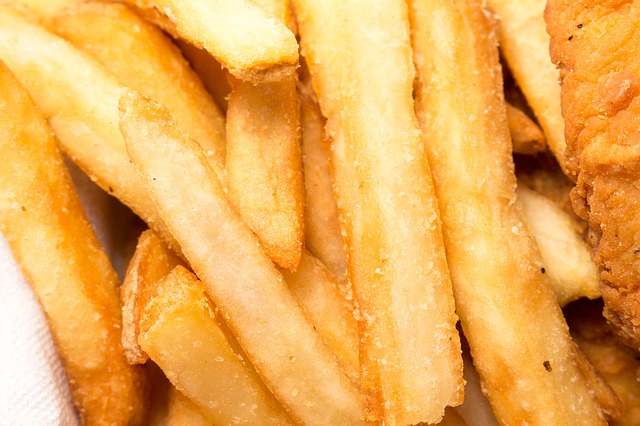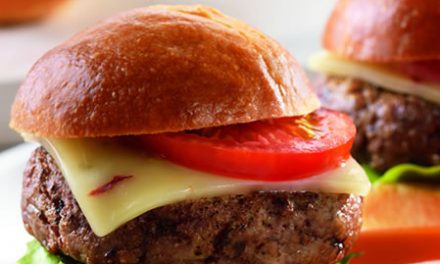The odds that frequently eating fast food meals can “supersize” you are real. But to prevent unwanted and unhealthy weight gain, is it enough to change your choice of food, drink, or portion sizes at fast food restaurants?
Or do you need to change your attitudes about eating and the places where you eat?
According to a recent, large nutrition survey, American adults and children who eat fast food meals more frequently tend to consume more calories, fat and sodium. They receive less of several vitamins and minerals.
In fact, on a typical day, almost a third of children and teens eat at a fast food restaurant. These individuals consume almost 200 extra calories, including nine more grams of fat and more than two extra tablespoons of sugar, than those who don’t eat at fast food restaurants.
People who eat more often at fast food restaurants are more likely to be overweight. A study that followed adults for 15 years found that changes in their fast food habits were directly related to changes in their weight.
Those who ate fast food more than twice a week throughout the study gained an extra 10 pounds. They were twice as likely to develop health problems related to insulin resistance than those buying fast food less than once a week.
The difference in weight gain is more than a reflection of where people choose to eat. What people eat makes the difference. Studies show that the same people tend to consume more calories, fat and sodium, and fewer vitamins on the days when they go to fast food restaurants than on the days they don’t.
Not counting French fries, people eat fewer vegetables with fast food, which results in a lower intake of nutrients. By not filling up on fiber-rich vegetables, people also consume more high-fat foods.
Studies tend to show that menu items identified as healthy or low-fat are correctly labeled. If we don’t choose them, however, calories can add up quickly.
The reason we can easily consume more calories than we need may be twofold. First is the tendency one report calls “passive over-consumption.” Our bodies don’t automatically sense that we need smaller portions when food is high in calories.
Second is our lack of a strong ability to compensate later in the day by eating less. This report highlights fast food as a particular problem, since these meals tend to be from 65 to 100 percent more concentrated in calories than other meals.
Since adolescents tend to eat at fast food restaurants so often, you might think they should all be overweight. One study concluded, however, that leaner teens seem to eat less during the rest of the day than overweight teens, if they eat fast food.
The data also shows that overweight teens overeat fast food more dramatically than the leaner teens. It’s possible that our ability to compensate for extra calories may depend on how much extra we eat.
Fast food meals are concentrated in calories because they are high in fat and low in non-starchy vegetables. Soft drinks, however, are a major part of the calorie load.
At least 100 calories of the increased load in a fast food meal tend to come from soft drinks. A large drink often provides about 300 calories, which is close to a meal’s worth for some individuals.
Furthermore, a problem with fast food could stem from our attitudes, as well as the food and drink for purchase. In one study, people who frequented fast food restaurants most often had little belief that what you eat affects your cancer risk.
Do you get fast food because you doubt vegetables, fruits, whole grains and beans are important for good health? If you do, your health would benefit from a change in your attitude.
By eating a variety of plant foods everyday, you can take advantage of all the nutrients and health-protective benefits that these foods offer.












